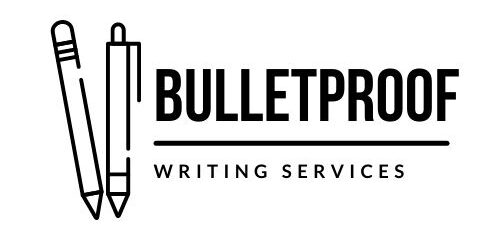
Photo by Nick Fewings on Unsplash
Imprints are a big part of the publishing world for all authors, traditional and indie alike. But how you use an imprint depends on your particular publishing goals. Every author has different goals, so it’s important to think about not only your manuscript but also your brand and business. That’s where imprints come into play. Today we’ll examine what imprints are, how traditional publishers use them, and how self-published authors can benefit from imprints as well.
What Is an Imprint?
An imprint refers to a specific division or brand within a publishing company. Imprints focus on a particular genre, topic, or style of books. Think of imprints as distinctive publishing labels. These labels allow readers to identify and associate specific qualities or themes with a particular imprint.
All of the Big Five publishing houses have dozens of imprints. As a reader, you’re probably more aware of imprints than you realize. Recognize any of these?
- Penguin Random House
- Ballantine Books
- Del Rey
- Multnomah
- Penguin Classics
- Writer’s Digest
- Simon & Schuster
- Folger Shakespeare Library
- Free Press
- Scribner
- Macmillan
- Flatiron Books
- Quick and Dirty Tips
- St. Martin’s Press
- Hachette
- Basic Books
- Economist Books
- FaithWords
- Little, Brown Spark
- HarperCollins
- Anthony Bourdain Books
- Broadside Books
- Harper Business
- Zondervan
How Do Publishers Use Imprints?
Large publishing houses create imprints for two reasons. First, they want to diversify their offerings. Second, they can cater to different market segments or reader preferences. Each imprint has its own unique editorial direction, target audience, and branding.
Publishers use imprints to market and promote books more effectively. They leverage the imprint’s reputation and the recognition associated with a particular brand. As a result, established imprints often have a loyal base of readers who trust the quality and consistency of the books published under that brand.
A fiction imprint may specialize in specific genres, such as science fiction, romance, or mystery. Think about one of the Big Five publishers, like HarperCollins. One of its imprints is Harlequin Enterprises. If you’re at all interested in women’s fiction or romance, then you know Harlequin is a good brand to look for when you need something new to read.
Imprints aren’t just for fiction, though. An imprint that centers on nonfiction may concentrate on particular topics, like history or self-help. Or it could focus on a certain style or format—think about cookbooks or instructional works. For example, Wiley has a range of imprints that specialize in academic or instructional books:
- Bloomberg Press focuses on financial and business texts.
- Capstone specializes in business books.
- For Dummies is one of the most famous imprints for instructional texts covering all topics.
- Wiley-Blackwell is a research brand that provides academic, scientific, and professional texts.
For authors looking to publish traditionally, look at comp titles. Note what publishers and imprints other authors in your genre use. Submitting a manuscript to a publisher that doesn’t work with your genre is a waste of your time. So save yourself some heartache and eliminate unnecessary rejection notices by doing this research first.
How Do Indie Authors Benefit from Imprints?
Imprints affect the self-publishing industry as well, even though indie authors aren’t required to set up an imprint. However, they may choose to create their own imprint for several reasons:
Professionalism and Credibility
Having an imprint gives self-published authors a professional and established image. It adds a layer of credibility and legitimacy to their work. As a result, readers, booksellers, and other industry professionals view their work as more polished and trustworthy.
Branding and Marketing
An imprint allows authors to create a distinct brand identity for their books. It helps differentiate their work from other self-published titles and can aid in building a loyal readership. By consistently publishing under the same imprint, authors can establish recognition and promote their brand across multiple books.
Legal and Business Considerations
An imprint can have practical benefits from a legal and business standpoint. It allows authors to separate their personal or legal identity from their publishing activities. This is especially useful for copyright protection, liability purposes, and financial management. It also provides a platform for potential collaborations, such as publishing works from other authors or expanding into different genres.
Distribution and Retail Opportunities
Some distributors and retailers may have specific requirements or preferences when working with self-published authors. It’s one of the drawbacks of self-publishing. Having an imprint can make it easier to approach these entities, as they often prefer working with publishers or imprints rather than individual authors. It opens up opportunities for wider distribution and better access to physical bookstores or online platforms.
Long-Term Publishing Strategy
Establishing an imprint allows self-published authors to think beyond a single book and develop a long-term publishing strategy. It provides a framework for future titles, series, or even a catalog of works under a consistent brand. This can help authors plan their publishing schedule, audience targeting, and overall career trajectory.
Whether to set up an imprint is a decision for each self-publishing author. The decision ultimately depends on an author’s goals, preferences, and resources.
Takeaways
No matter how you decide to publish your manuscript, be it traditional, self, or hybrid, you’ll need to consider imprints. If you want to work with traditional or hybrid publishers, look for imprints that specialize in your genre to help find the right publisher for your manuscript. If you’d rather self-publish, think about your overall publishing goals, and determine whether the benefits of having your own imprint will help you meet those goals. Every step of your writing and publishing journey should align with and support your goals. As you progress toward the editing stage of your project, contact me! I’d love to learn more about your manuscript and goals and support you on your path to publication. Together, we’ll make your writing bulletproof!
